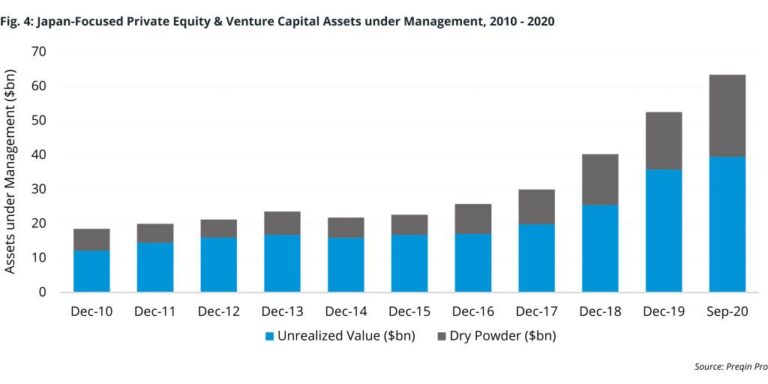As global investors hunt for fresh opportunities beyond traditional markets, Japan is increasingly capturing attention as a burgeoning hotspot for private equity. Once viewed as a challenging environment due to its complex corporate culture and regulatory landscape, the country is now being reconsidered in light of recent economic reforms, an aging population reshaping capital needs, and a wave of family-owned businesses seeking succession solutions. In this evolving context, the Financial Times examines whether Japan is poised to become private equity’s next frontier, offering both risks and rewards for investors eager to diversify their portfolios.
Japan’s Aging Economy Presents Unique Challenges and Opportunities for Private Equity
Japan’s demographic landscape is reshaping its economic framework, creating a distinctive environment for private equity firms. With one of the world’s oldest populations and a shrinking workforce, traditional industries face intensified pressures to innovate, consolidate, or pivot strategically. Private equity investors are stepping in not merely as capital providers but as catalysts for transformation-enabling modernization through technology adoption, corporate governance reforms, and cross-sector mergers. This dynamic has unlocked opportunities especially in sectors such as healthcare, senior living, robotics, and niche manufacturing, where aging trends correlate with rising demand and potential for scalable growth.
Key considerations for private equity players include:
- Long-term value creation: Patience is essential, as turnaround and digital integration efforts may take years to mature.
- Partnership with local legacy businesses: Acquiring and collaborating with family-owned enterprises that dominate regional markets.
- Regulatory nuances: Navigating Japan’s unique corporate culture and legal environment requires tailored investment strategies.
- Focus on ESG: Social responsibility and sustainable practices resonate strongly in Japan’s evolving business ethos.
| Sector | Private Equity Interest | Growth Driver |
|---|---|---|
| Healthcare Services | High | Rising elderly population |
| Technology & Robotics | Moderate | Automation needs |
| Manufacturing | Steady | Legacy firm consolidation |
| Senior Housing | Emerging | Demand for elderly care facilities |
Government Reforms and Market Deregulation Set the Stage for Increased Investment
Recent shifts in policy have unlocked new avenues for capital inflows, marking a pivotal turning point for investors seeking growth in Japan’s private equity landscape. Bold reforms aimed at reducing bureaucratic red tape and facilitating a more transparent regulatory environment have injected fresh dynamism into the market. This wave of deregulation is not only spurring greater entrepreneurial activity but also enticing foreign investors who had previously viewed Japan as a challenging market due to its traditionally conservative governance structures.
Key changes include:
- Relaxed corporate ownership rules, allowing easier acquisition of stakes by private equity firms
- Streamlined approval processes for cross-border investments
- Incentives for revitalizing regional economies through targeted capital allocation
| Policy Shift | Impact | Timeline | ||||||||||||
|---|---|---|---|---|---|---|---|---|---|---|---|---|---|---|
| Capital Gains Tax Reduction | Boosts private equity returns | Implemented March 2023 | ||||||||||||
| Simplified Merger Approvals | Accelerates deal closures | Effective since January 2024 | ||||||||||||
| Regional Investment Subsidies |
Strategic Partnerships and Local Expertise Key to Unlocking Japan’s Untapped PotentialJapan’s complex business landscape requires investors to go beyond conventional methods, making strategic alliances with local partners indispensable. These partnerships provide crucial market insights and cultural understanding, enabling private equity firms to navigate regulatory intricacies and uncover hidden opportunities in sectors such as technology, healthcare, and manufacturing. Local expertise acts as a catalyst, accelerating deal flow and fostering sustainable growth in a market traditionally perceived as opaque and challenging for foreign capital. In addition to partnerships, leveraging in-depth knowledge of regional business customs helps investors identify undervalued assets and support management teams more effectively. The symbiotic relationship between foreign capital and domestic know-how creates a dynamic environment where innovation and expansion can thrive. The following table highlights key benefits local partners bring to private equity ventures in Japan:
To ConcludeAs Japan increasingly opens its doors to private equity investment, the market presents both significant opportunities and notable challenges. With its vast economy, aging population, and legacy corporate structures, Japan stands at a potential inflection point for private equity firms seeking new growth avenues. However, investors will need to navigate cultural nuances, regulatory frameworks, and operational complexities unique to the region. Whether Japan ultimately becomes private equity’s next frontier will depend on how adeptly the industry adapts to this distinctive landscape in the years ahead. |




